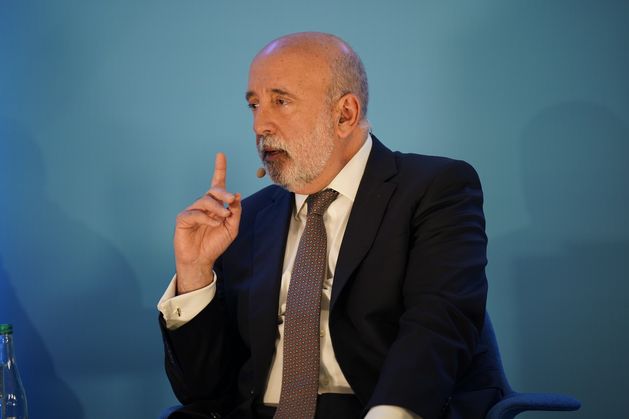American tech and AI firms are pushing share prices to unprecedented highs, supported by expectations of strong earnings growth, creating a disconnect with the still-high levels of economic uncertainty, the review says.
If the outlook for these companies was to worsen, there could be a correction in the US markets, leading to a shift in international sentiment and a fall in stock prices in other markets. The high exposure of US households and foreign investors to US equity markets means any sharp correction would have far-reaching implications.
“While Irish households, businesses and financial institutions currently have relatively healthy balance sheets and the domestic banking system has the capacity to absorb a severe shock to the economy, risks from economic and trade uncertainty are significant given Ireland’s structural openness and reliance on US foreign direct investment,” the Financial Stability Review published today says.
Launching the review, Central Bank governor Gabriel Makhlouf pointed out that the Irish economy is particularly exposed to international developments, given our openness and reliance on American multinationals. A small number of highly globalized sectors – such as pharma – are crucial for jobs and corporate tax receipts.
“Given this concentration risk and at a time when growth in infrastructure investment is needed, public expenditure plans will continue to need careful management,” he said.
However the Central Bank has no fears about the resilience of Irish households, businesses and financial institutions, which all have relatively healthy balance sheets.
“Given this starting position, even in an adverse scenario, featuring an escalation of geopolitical tensions, our analysis suggests that the number of firms in financial distress or households that would be unable to cover debt payments would be contained,” Mr Makhlouf said.
“As illustrated by recent stress tests, the domestic banking system has the capacity to absorb a severe economic shock and continue to support to the broader economy.”
Clarity on US tariffs has led to an improved global outlook, but the improvements in growth forecasts rely on current agreements between the US and its trading partners being maintained, and there is the potential for further trade shocks, according to the review, which is published twice a year.
Mr Makhlouf said economic uncertainty remains high, and it will take time for the effects of new trading arrangements to become apparent. The steadiness of trade relationships over the medium term “remains unclear”, he pointed out.
He also spoke about recent high-profile bankruptcies of Tricolor Holdings and car-parts supplier First Brands Group in America, saying they raised questions about lending standards by non-banks in private credit markets.
In terms of the domestic economy, Mr Makhlouf said credit growth has picked up, driven by mortgage credit, particularly for first-time buyers. The lending is in line with rising incomes.
“The link between unsustainable lending practices and house prices – a strong feature of Global Financial Crash-era property valuations – is not apparent,” the Central Bank governor said. “A more prominent driver of prices in the current environment is a shortage of housing supply. For commercial real estate, the domestic market shows signs of stabilization and sentiment indicators point to a gradual recovery.”

